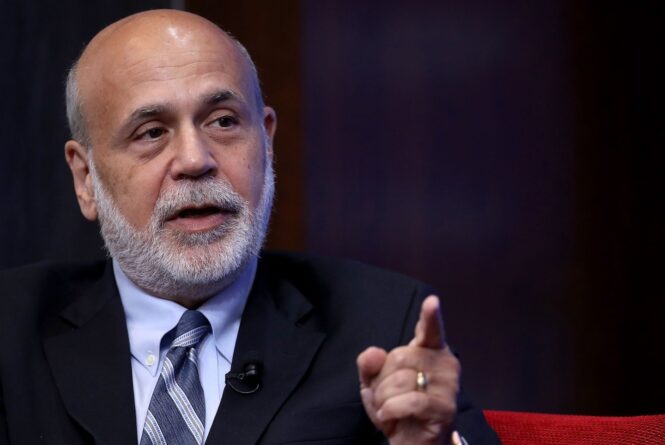
These efforts proved abruptly related in 2008, when a burst bubble in mortgage lending triggered a panic that crippled each conventional banks and lenders within the so-called shadow banking sector, resulting in the failures of a number of giant establishments together with Lehman Brothers Holdings Inc. The accompanying credit score crunch in the end threw hundreds of thousands out of labor and destroyed an estimated $1.4 trillion in financial output within the US alone.
Regardless of his scholarship, Bernanke — who chaired the Federal Reserve from 2006 to 2014 — was sluggish to reply to the brewing disaster. As late as 2008, the central financial institution thought-about the biggest US monetary establishments sound sufficient to maintain making shareholder payouts that decreased their fairness capital and elevated their leverage. Their capital buffers quickly proved woefully insufficient, requiring the Fed and different authorities to place up trillions of {dollars} in taxpayer cash to tug the monetary system again from the brink of collapse.
Regulators have since responded with extra stringent capital and liquidity necessities, designed to restrict leverage and guarantee banks have sufficient money to climate a disaster of confidence. But even amongst conventional banks, capital ranges would should be lots larger to make sure resilience in a extreme disaster. And as illustrated by incidents such because the latest travails of UK pension funds and the implosion of Archegos Capital Administration, regulators should do nonetheless extra to restrict leverage amongst nonbank monetary establishments — for instance, by setting minimal collateral necessities in lending and derivatives markets.
The economics Nobel often rewards analysis that has lengthy been broadly accepted and acted on. Not this time. The world as soon as once more finds itself heading into an financial downturn with little confidence that the monetary sector shall be a supply of power, moderately than of contagion. Let this prize function a reminder: The job of addressing the vulnerabilities that Bernanke, Diamond and Dybvig described — and that the 2008 monetary disaster laid naked — is way from finished.
Extra From Bloomberg Opinion:
• How Do We Repair Bernanke’s Fixes? That’s for a Future Nobel: Stuart Trow
• Chemistry Nobel Winner Needs a Shake-Up of Her Discipline: Lisa Jarvis
• On Putin’s Birthday, the Nobel Peace Prize Honors His Enemies: Therese Raphael
The Editors are members of the Bloomberg Opinion editorial board.
Extra tales like this can be found on bloomberg.com/opinion
